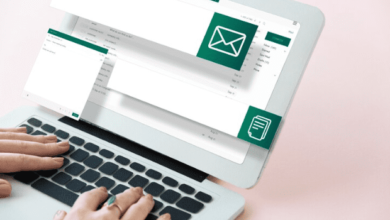How to Apply for Sole Trader Status in New Zealand

Are you considering opening your own business in New Zealand?
In excess of 400,000 people currently work for themselves in New Zealand. Here’s what you need to know if you want to start a sole proprietorship in New Zealand.
Who are the sole traders in New Zealand?
A sole proprietorship is the most basic and uncomplicated type of business form. If you want complete control over your company and fewer reporting obligations, operating as a sole trader may be best for you.
Your personal life and your sole proprietorship are intertwined. As the single proprietor of your company, any gains belong to you personally. Being a sole trader is a flexible method of operating and is a typical organizational structure for freelancers in New Zealand.
As a sole proprietor, you are able to deduct company expenses from your revenue; for instance sole trader liability insurance, rental costs, marketing expenses, and employee fees. But you will also bear personal liability for all debts and obligations.
For New Zealanders starting their own businesses, the government of New Zealand offers financial assistance. If you’re unemployed and thinking about going into business for yourself, you might be eligible for a Flexi-wage weekly benefit payment or a self-employment start-up payment to help with startup costs.
Establishing your own business
Forming a sole proprietorship in New Zealand is a simple procedure. Most of the time, no documentation is required; you may simply begin working without filling out any official registration forms.
An Inland Revenue Department (IRD) number is a requirement for being a sole proprietor. If you’ve ever had a job in New Zealand, you most likely already have one. If not, applying for an IRD number is free. After receiving your IRD number, log in to the myIR website and send a secure message to the government to inform them that you have begun working for yourself.
If your annual income exceeds NZ$60,000, you must register for Goods and Services Tax (GST). You can create an Inland Revenue account and register online. After registering, you must begin charging and paying GST.
You have the option of applying for a New Zealand Business Number (NZBN). Having an NZBN gives your business legitimacy by being formally listed in a searchable database of New Zealand companies, which also makes it easier for other companies to get vital operational data (known as Primary Business Data) about you. It is free to get an NZBN.
In some cases, you may need licenses or formal qualifications to operate a business in your specific industry. For instance, if you’re going to be making food-related goods, you could need a license, and if you’re going to be working with animals, you might need a permit from the Department of Conservation. For central government regulations, you might start with the Compliance Matters tool provided by the government.
You might need to register with Inland Revenue as an employer if you hire anyone, including your spouse or partner, to work for your sole proprietorship. You will also need to provide workers’ compensation insurance.
Depending on the sector you work in, liability insurance and other insurance are also frequently obtained by contractors. If you are sued or commit an error at work, the insurance coverage will play an important role in protecting you and your company.
Choosing the name of your company
You have the option of using your legal name or a business name when operating as a sole trader. For instance, you might conduct business as John Dow or John Dow Plumbing. Choosing a business name that is unique can help you more distinctively identify your operations and distinguish them from your personal identity. To find out if the name you want is available, use the ONECheck service.
To further establish your professional authority, now is also the ideal time to get a domain name for your website and design a brand logo.
Taxes
The Inland Revenue Department is responsible for collecting all federal taxes in New Zealand (IRD). You will report income as a sole proprietor using your unique IRD number.
The net earnings from your sole proprietorship operations are subject to income tax. You will be required to record and submit your income on your individual IR3 return.
Instead of paying during the regular tax season the following year, you can choose to prepay income tax in the first year of your business. You can receive a unique 6.7% early payment discount by paying in advance. If you have enough cash flow, this may be a wise move.
Also, as a self-employed person, you’ll be registered immediately in New Zealand’s ACC CoverPlus program, which will pay you weekly benefits if you have an accident and are unable to work. You will get an annual invoice for the ACC levy beginning with your second year of operation.
Receiving payment in New Zealand
In New Zealand, payment options include postal orders, cash, checks, and bank deposits. You will need a bank account in your business name.




